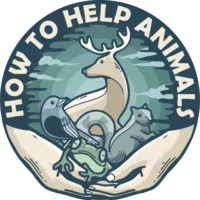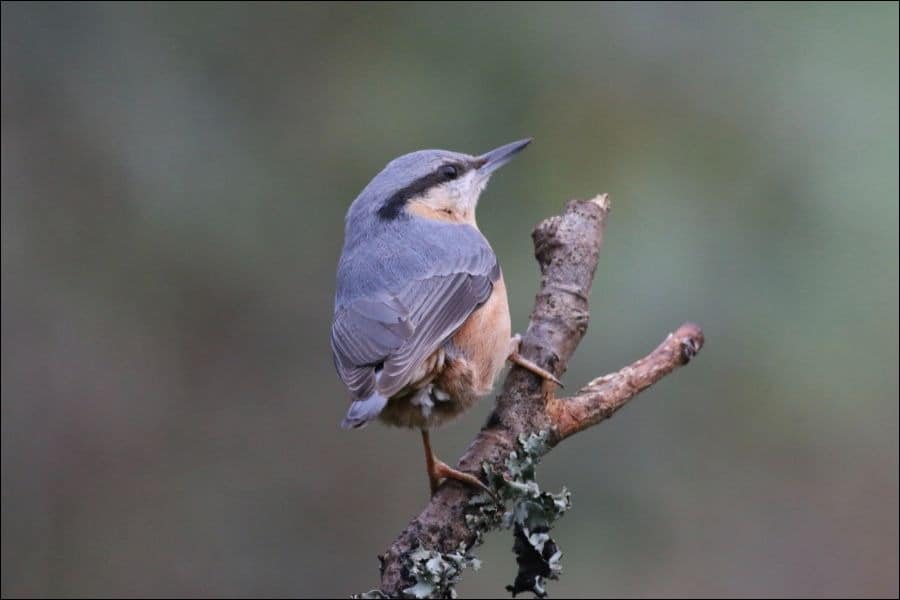
Wild birds and humans differ a lot when it comes to eating. We can eat some things they aren’t to and vice versa. I have seen a lot of weird stuff in people’s bird feeders, and in some cases, even worrying. Through this article, I will give you the ultimate guide of things you should never feed wild birds.
You should not feed wild birds avocados, bread, caffeine, chocolate, cookies, dried beans, fats, garlic, honey, milk, mushrooms, old nectar, onions, pesticides, potato chips, raw meat, salt, spoiled seeds, table scraps, or xylitol. Some are really toxic for birds and should be avoided at all costs.
I will go through each item and explain how it harms the wild birds and why you shouldn’t feed the item to them. Every item will instead have an alternative that is much better for the wild birds.
What food should you never give wild birds?
The ordering of foods is alphabetical, and not in how harmful they are to the wild birds. I made a video explaining this. Watch it below.
1. Avocado

Avocados are highly toxic to birds. Avocado contains persin, which is harmful to the heart in some species. Everything in the avocado is toxic to birds: the outer shell, the fruit meat, the pit, and the seed. If birds eat persin and get toxified, it would lead to the birds collapsing, lethargy, heavy breathing, and even sudden death.
Although there is no cure for a bird that has eaten avocado, a veterinarian can give the bird supportive care in the last moments of its life. Usually, symptoms of persin poisoning show within 12 hours in birds.
If you wish to provide the birds with some good fats, which will supply them with a lot of energy, you should invest in fatty balls made of coconut fat. There are also ways to make vegan fat balls yourself. Not only does coconut fat give the birds a good healthy fat, but it also improves the skin quality and feather conditions, according to veterinarian dr. Karen Becker. Dr. Becker also explains why birds need coconut fat in their daily diet. Check out the video below.
2. Bread

Bread is that thing everyone is saying you shouldn’t feed wild birds (and they are correct), yet you can always see people outside, feeding the birds with some old loaf of bread. In some cases, even old moldy bread.
So, why shouldn’t you feed bread to birds? Bread isn’t actually toxic or harming the bird (unless it’s moldy). It almost doesn’t contain anything – how can it be harmful. The problem with bread is just that. It almost doesn’t contain anything. Birds eat the bread, fill their stomachs but don’t receive any nutritional benefits from it.
How would you feel if your entire diet was made up from plain white bread?
A slice of white bread contains 1g of fiber. That’s almost nothing. The bird’s digestive system has to work to build up some warmth in the body. And while breaking it down, also collect the vitamins and minerals from it. However, bread doesn’t almost contain any fiber, vitamins, or minerals. It takes up space in the belly and forces the bird not to look for other food.
If you were to switch to wholewheat bread, the fiber would increase to 3g per slice. Which still isn’t good enough, in my opinion.
Instead of bread, you should instead offer the birds the source of bread. Wheat and oats! Give the birds some wheat or oats instead. Not only do both contain 10% protein, but also 10% fiber and a lot of minerals. There are some good bird mixes on Amazon, which both contain wheat and oats. However, this bag also contains millet, sunflower seeds, cracked corn, and safflower.
3. Caffeine

Caffeine can be toxic to birds. It can increase heart rate, arrhythmias, hyperactivity, but also cardiac arrest, and death. Caffeine can be found in coffee, tea, energy drinks, soda, and supplements.
What happens if a bird drinks or eats something containing caffeine. Hopefully, the bird didn’t consume too much caffeine, and nothing will happen. However, if you see a bird drinking coffee, make sure to provide them with a lot of water to keep them dehydrated. Then, hopefully, they will be fine.
4. Chocolate

Both cats and dogs will be in severe danger only by eating a few grams of chocolate. Birds don’t require much chocolate to be lethal. Anything more than 2g is hazardous.
Chocolate contains both theobromine and caffeine, which both are toxic to birds. Symptoms of toxicity from chocolate typically appear for about 10 hours after ingestion. Therefore, if you have a pet bird who consumed chocolate, you need to immediately take it to the vet.
While chocolate can be a treat for us humans, it isn’t for our avian friends. If you would like to give them a treat, you can offer them fat balls and seeds. Birds really love fat and seeds. Bird’s favorite seeds are different types of sunflower seeds: black oil sunflower, striped sunflower seeds, and sunflowers seeds without shells. But they do also love suets.
5. Cookies

Cookies, biscuits, crackers, or whatever you call it, are not suitable for birds. Cookies usually contain a lot of sugar and butter, which isn’t part of a wild bird’s natural diet. As bread, cookies are also made from flour, which doesn’t provide any nutritional value for the birds. Instead, cookies fill up the bird’s belly and force the bird to stop looking for proper food.
While cookies may be a good treat for us humans, it isn’t doing much else than harming the birds.
If you would like to offer the birds in your garden a treat, you can give them seeds and maybe some dried mealworms if you have omnivore birds visiting. If winter is coming and the birds need to fatten up so they can handle the colder climate, you might want to give them some extra fat. You can combine mealworms and the fat with a delicious suet ball.
6. Dried beans

Dried, uncooked, raw beans are toxic to birds. They contain a lectin called hemagglutinin which is very bad for birds.
However, cooked beans are a great food for birds. They provide the birds with rich nutrients packed with protein and fiber. It keeps them full for longer.
If you plan to give the birds beans from yesterday’s food, make sure to rinse them thoroughly so sauce or seasonings get removed first.
7. Fats

Some animal fats should be avoided to be given to birds. Fat from bacon, for example, contains a lot of salt. A too high amount of salt can hurt the kidneys and isn’t good for you or the birds. However, there is fat from non-animal sources, which can be healthier and provide the birds with nutrients without raising their cholesterol levels, for example, coconut fat.
8. Garlic

Garlic is very popular in human food. Both in raw and cooked form and provide richness to most foods. Sadly our two-legged friends aren’t able to share the great taste of garlic with us. This is because garlic contains a chemical called allicin, which can cause anemia among birds.
9. Honey

Naturally, honey holds a bit of moisture which can cause spoilage. Honey that has been stored improperly can absorb moisture. This leads to the growth of microorganisms and mold being visible. However, this rarely happens, and seeing honey develop mold is very uncommon. Although, even the best organic honey can hold the Clostridium botulinum, which can develop a lethal poison called Botulism and surpass it to birds when serving it to them. Botulism is a rare food poisoning, yet very hazardous if it occurs. This is why children under the year of one aren’t recommended to consume honey.
10. Milk

Milk isn’t lethal, but yet it isn’t good for birds to drink. Birds are lactose intolerant and will cause them to suffer. If fed milk containing dairy, the birds will suffer from both bloated stomachs and diarrhea. Its not only milk containing lactose, but also other food. Yogurt, cheese, and halloumi are other examples of things you should never feed birds.
11. Mushrooms

Both cooked and raw mushrooms are known to cause suffering among birds. Where raw mushrooms cause digestive problems, and the mushroom cap can potentially cause liver damage. It might see that cooking mushrooms remove all bad toxins, but that isn’t the case. The small remaining amount can still affect the birds in the same negative way.
12. Old nectar
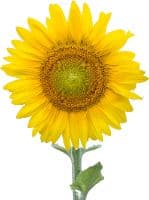
Nectar is a sugar-rich liquid that comes from flowers. Sold in stores, it usually comes in powder or liquid form. Like other things containing sugar – it can spoil and harm the birds. You can see on the nectar if it has changed color into some cloudy mixture. You will also notice there are some small floating clumps. I usually mix nectar with the bird mix in my bird feeders, and never since I switched to use Naturally Fresh with its resealable bag, experienced the nectar going bad. The bottles with screw caps didn’t keep it as tight as I wanted.
13. Onions

Onions have been used by humans for thousands of years. Although safe for us, they are really toxic to birds. In all forms. Onions contain sulfur, which can cause irritation in the bird’s mouth and cause ulcers. Any type of onions causes this, no matter color or shape.
14. Pesticides

Pesticides hurt birds in at least two ways. Pesticides can be lethal to birds if it has contaminated their bird seeds and other foods. Pesticide’s main purpose is to eliminate pests in your garden. Like insects that thrive on your plants in the garden. If you remove the insects, you also remove many bird’s natural foods, causing the birds to starvation.
Please don’t use pesticides in your garden, but instead, let nature solve it for you. Frogs and birds eating insects. Hedgehogs eating slugs, for example.
15. Potato chips
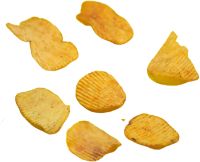
Potato chips contain mainly three things: potatoes, salt, and oil. While chips provide a tiny bit of nutritional value in minerals and vitamins, it comes with a great amount of salt and oil. Salt is not good for birds in this form and should instead be consumed in moderation. Too much salt may actually be toxic for birds.
Birds need saturated oils, like suet and coconut oil. Usually, chips are fried with sunflower oil, combining polyunsaturated fat and small bits of monounsaturated fat.
If you wish to treat the birds in your backyard with some healthy fats, you would be better off getting a nice set of suet from Amazon.
16. Raw meat
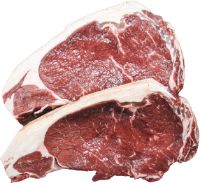
While many birds are carnivores and omnivores, you shouldn’t provide them with meat scraps. Many people have a problem with carnivorous birds in the neighborhood, scared for the safety of their pets. Raw meat waste also attracts pests like rats which bring other challenges. If there is a large population of omnivore birds in your area, you might want to consider offering them dried mealworms or suets instead.
17. Salt

As mentioned in #15, salt isn’t good for birds. At least not too much. A too high amount of salt can be toxic to birds. Too much salt can disturb the electrolyte and fluid balance in the bird’s tiny bodies resulting in massive thirst, kidney failure, and certain death.
18. Spoiled seed
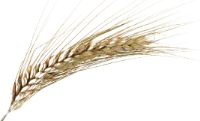
Although birds aren’t picky eaters, there are some things they don’t eat. Seeds that smell weird and may have some mold are not on their favorite things to eat. If the seeds have been exposed to moisture, they can grow to mold, fungus, and even feces on the seeds. Not so tempting to eat. However, if the bird’s food supply were scarce, the birds might eat the spoiled seeds, killing them. If the seeds become rancid – throw them away.
19. Table scraps
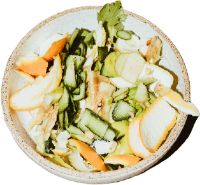
Some table scraps are suitable for birds to eat, but it also comes with a risk of giving the birds your leftover food scraps. Pasta, veggies, fruits, and nuts are examples of good items to provide the birds with.
However, it’s important you check the food for mold, and if they have started to rot. If they are good to eat – why not feed yourself with it instead? The birds are happier with bird seeds. Food scraps most certainly doesn’t provide all the nutrition the birds require. There’s also the risk of attracting pests who als enjoy scraps.
20. Xylitol

Xylitol is mostly known as an artificial sweetener. It’s usually found in sugarless gums and diet foods, but also some vegan treats like chocolates. Xylitol however does come with a price. It can cause hypoglycemia, liver damage, but could also be lethal to pets, and other animals. Birds shouldn’t be offered sweets, chewing gum, or any other human treats unless it’s nuts.
